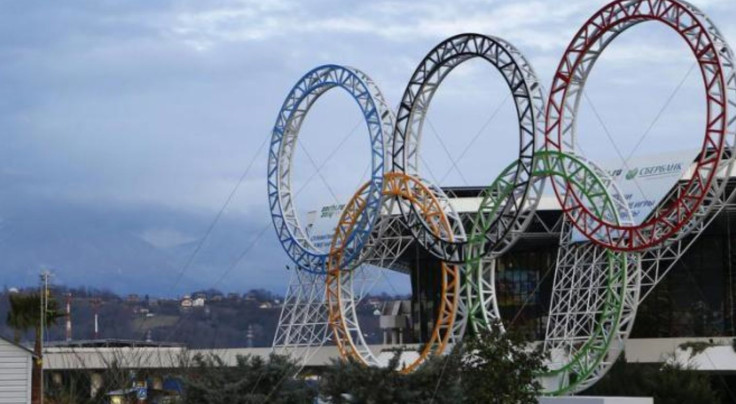Russia Moves Against Anti-Gay Discrimination At 2014 Sochi Winter Olympics

The red-hot controversy over how Russia will treat homosexual and gay-friendly tourists and athletes at the Sochi 2014 Winter Olympics in light of its new “anti-gay” laws appears to have played a part in swaying the Russian government to at least begin to re-examine its stance on the issue.
The United Nations adopts an Olympic Truce every two years aimed at promoting “the cause of peace” and laying out some basic guidelines about the handling of civil rights and other issues at the Olympics. The relevant resolution generally passes with little fanfare, but in light of new laws that criminalize gay activity and threaten to lead to the detention and deportation of Olympics attendees, there was great consternation over the truce this year, the New York Times reported Saturday.
Amid concerns about the impacts of the laws and vows by a number of Russians, including St. Petersburg lawmaker Vitaly Milonov, that the laws will be enforced at the Sochi 2014 Winter Olympics, negotiations over this year’s Olympic Truce grew intense, and eventually led Russia to add new language aimed at including all people to its version of the resolution.
Russia’s Olympic Truce initially stated that its Olympics would be inclusive of “people of different age, sex, physical capacity, religion, race and social status,” according to the New York Times. After much deliberation, Russia reportedly agreed this week to change the wording of the truce -- which the U.N. will likely vote on within the next month -- to state that it would “promote social inclusion without discrimination of any kind” at the Olympic Games.
The decision to amend the truce from one that did not seem to offer protections for gay and transgender athletes to one that ostensibly eschews discrimination in all its forms will likely be a welcome yet insufficient development for the many people around the world who have decried the so-called gay propaganda laws and vowed to boycott the Olympics and various Russian products in protest against the statutes.
If such activists are to be appeased, the Russian government will need to go further than simply signing a U.N. resolution, especially in light of Milonov’s comments this summer, which drew attention from observers around the world. “If a law has been approved by the federal legislature and signed by the president, then the government has no right to suspend it. It doesn’t have the authority,” Milonov told the Interfax news agency in a piece published by Russia Beyond the Headlines. He added, “Any normal athlete or sport fan arrives to support his team and to watch sport events in their splendor, not to violate the laws of the hosting country.”
Three new federal anti-gay laws authorize Russian authorities to apprehend foreigners who are found to be “pro-gay” and to detain them for as long as 14 days before deporting them.
Milonov’s remarks came on the heels of statements by the International Olympic Committee that indicated it had obtained assurances from Russian authorities that people attending or participating in the Olympic Games next winter would be exempt from the “gay propaganda” statutes. The committee’s statement to the Russian news outlet R-Sport said that Russian leaders had made assurances that the laws would not impact attendees or athletes.
“The IOC has received assurances from the highest level of government in Russia that the legislation will not affect those attending or taking part in the games,” the committee wrote in an emailed statement, adding, “This legislation has just been passed into law, and it remains to be seen whether and how it will be implemented, particularly as regards the Games in Sochi.”
Despite these reported assurances, Milonov said at the time that the laws -- which the New York Times described as criminalizing “pro-gay” behavior, banning adoption of Russian children by homosexual couples and parents who support gay marriage and allowing for foreign nationals to be arrested, detained and deported should they be deemed homosexual or “pro-gay” -- would be enforced during the Sochi 2014 Winter Olympics and that athletes and tourists will not be exempted.
The controversy over potential arrests and deportations of gay athletes and tourists attending the Olympics next year comes as Russia remains in turmoil as gay-rights demonstrators across the nation have been repeatedly targeted and arrested by law-enforcement officers and beaten by anti-gay crusaders, as noted by the Guardian.
A number of American, Australian and Canadian gay bars have stopped serving Russian vodka brands such as Stolichnaya and Zyr in protest of the new laws and the Russian government’s crackdown on homosexuals and gay-rights supporters, as pointed out by CNNMoney. The impacts of Russia signing an inclusive Olympic Truce on the ongoing maelstrom over the nation’s treatment of gays remain to be seen.
© Copyright IBTimes 2025. All rights reserved.




















